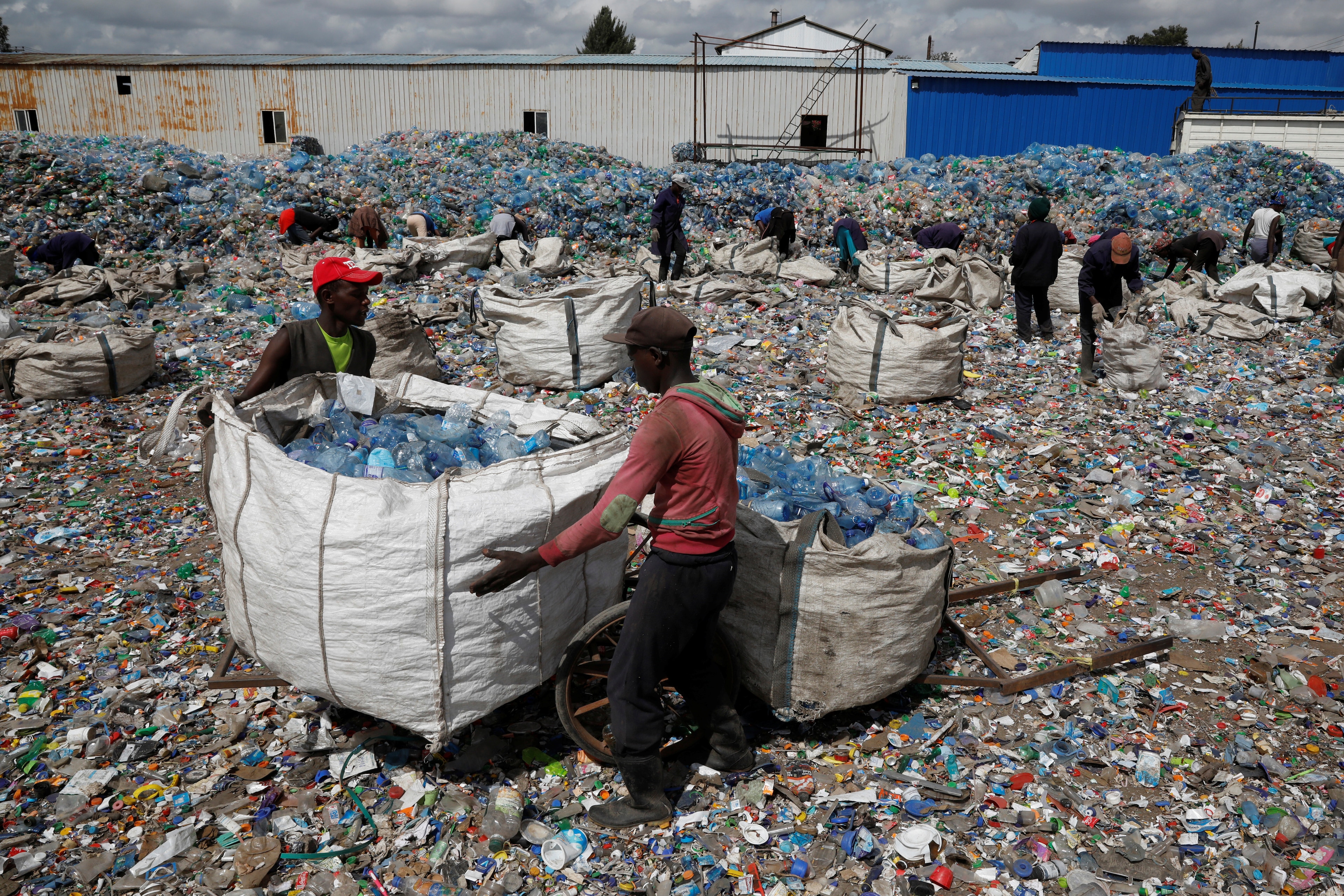This entrepreneur built an island resort out of plastic waste

This Ivory Coast island resort floats on 700,000 plastic bottles.
Image: REUTERS/Luc Gnago
Stay up to date:
Plastic Pollution
- The island off Africa's Ivory Coast floats on 700,000 plastic bottles packed into boxes.
- The resort is equipped with solar panels and has a pool.
- Entrepreneurs are finding innovative ways to control our plastic waste problem.
For many people, a glut of plastic bottles floating in a lagoon would be negative. For entrepreneur Eric Becker, it sparked an idea for a business opportunity.
Among the litter, he had a vision to build a holiday destination with swimming pools, bars and relaxation areas.
Becker initially moved to the Ivory Coast with a plan to set up a catamaran business. It took him six years to build the island resort from plastic bottles, he told Reuters. The result floats on 700,000 bottles packed into boxes in the middle of Abidjan's lagoon, with a hotel that opened in 2018.
"Little by little, my idea of building a travel boat turned into how to build a system,” Becker says.
Would you stay on an island made from plastic waste?
Around 100 guests visit the island each week, with most coming on weekends. While the destination has solar panels for electricity, water has to be pumped in from the land because the lagoon is too polluted.
Becker’s work underscores the importance of finding innovative ways to tackle the volume of plastic in the environment. The challenges presented by single-use plastics are now well known, with roughly a truckload dumped into the ocean every minute. The Ellen MacArthur Foundation shows even regions with the highest recycling rates only manage to recycle around half their packaging.
What is the World Economic Forum doing about plastic pollution?
The project showcases how plastic can repurposed and used in innovative ways.
"It is a beautiful project and I think in future there will be several floating islands like this one,” says Becker. “We could have floating islands all over Ivory Coast and that would be great for us."
Don't miss any update on this topic
Create a free account and access your personalized content collection with our latest publications and analyses.
License and Republishing
World Economic Forum articles may be republished in accordance with the Creative Commons Attribution-NonCommercial-NoDerivatives 4.0 International Public License, and in accordance with our Terms of Use.
The views expressed in this article are those of the author alone and not the World Economic Forum.
Forum Stories newsletter
Bringing you weekly curated insights and analysis on the global issues that matter.
More on Circular EconomySee all
Oliver Kade and Sarah Hadley
July 28, 2025
Elena Raevskikh and Giovanna Di Mauro
July 23, 2025
Jonquil Hackenberg
July 9, 2025
Giorgio Parolini
July 7, 2025
Zulfiqar Hamadani and Shahad Nejaim
June 25, 2025
Anne Raudaskoski
June 19, 2025








